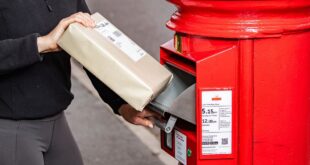Arrival was launched by Russian entrepreneur Denis Sverdlov and was largely self-funded from his personal $500m venture fund Kinetik until investment in 2020 by BlackRock and Fidelity. Sverdlov had founded several internet companies in the 2000s, before briefly becoming deputy communications minister under Vladimir Putin’s prime minister Dmitry Medvedev in 2012. He is now based in London.
At its Bicester facility, Rugoobur, who joined in 2019 from General Motors’ self-driving Cruise division, is keen to impress that Arrival is on the brink of rolling hundreds of snub-nosed electric vans to Britain’s roads at a fraction of the price of a traditional assembly line.
“Look at how the automotive industry is currently operating. You have these large factories out in the middle of nowhere producing 100,000 to 200,000 units per year and shipping them all over the world,” he says.
“We thought there has to be a better way to do it. The production line is a 100-year-old technology. As we move to EVs, is that how you would build a vehicle today?”
One of its solutions is to reinvent the assembly line: Arrival uses modular cells for putting vans together, as opposed to lines that can stretch to more than a kilometre long. It has also developed a novel fibre, a polypropylene glass weave, used for the bodywork of its vans as opposed to steel.
“When you talk about metal bodies you need painting lines, welding lines, the way the car is manufactured is tailored towards these huge centralised plants,” says Rob Thompson, Arrival’s head of materials. “We wanted to approach the materials manufacturing in a decentralised way, utilising all the technology that has become available.”
“Denis one day asked us to show how strong the panel is, so we started driving over them with an eight-tonne truck.”
What will ultimately become the bodywork of its vans, cars and bus starts as a weave similar to that used in clothing, which is mixed with glass fibre and compressed. It is then moulded into sturdy panels, to be embedded with colour pigments. This cuts out the paint shop and the need for metal stamping: two of the most expensive sections of a normal production line.
But the concept is as yet unproven. Arrival will not begin rolling vans out of its Bicester site until the latter part of 2022. UBS analyst Steven Fisher argues in a note that “the timing of the ramp up looks a bit too optimistic” and the company will likely need to initiate further debt or equity offerings.
Source link

